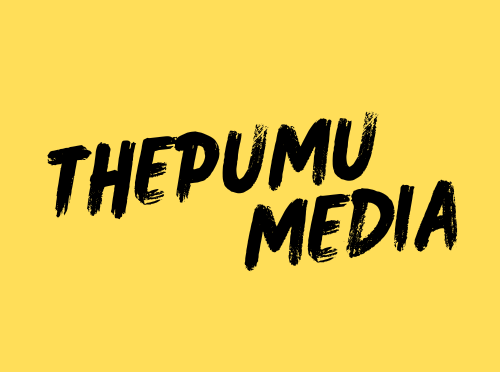Introduction
Pay-Per-Click (PPC) advertising is a powerful digital marketing strategy that can help your business reach its target audience and boost sales. In this beginner-friendly guide, we’ll break down the basics of PPC advertising in simple terms, so you can understand how it works and how to get the most out of it for your marketing efforts.
Table of Contents:
- What is PPC Advertising?
- How Does PPC Advertising Work?
- Why Use PPC Advertising?
- Choosing the Right PPC Platform
- Keyword Research for PPC
- Creating High-Quality Ad Campaigns
- Understanding Ad Quality Score
- Budgeting and Bidding Strategies
- Monitoring and Optimization
- Common PPC Mistakes to Avoid
- 10 FAQs About PPC Advertising
1. What is PPC Advertising?
PPC stands for Pay-Per-Click. It’s an online advertising model where advertisers pay a fee each time their ad is clicked. In simple terms, you only pay when someone interacts with your ad, making it a cost-effective way to drive targeted traffic to your website.
2. How Does PPC Advertising Work?
When you set up a PPC campaign, you choose specific keywords related to your business. When users search for those keywords on search engines like Google, your ad may appear at the top of the search results. If someone clicks on your ad, you pay a small fee.
3. Why Use PPC Advertising?
PPC offers several advantages for beginners:
- Immediate Results: Unlike some other marketing methods, PPC can generate quick results and drive traffic to your site almost instantly.
- Targeted Audience: You can target your ads to specific demographics, locations, and even the time of day.
- Cost Control: You set your budget, and you won’t overspend.
- Measurable Results: PPC platforms provide detailed analytics, so you can track your ROI.
4. Choosing the Right PPC Platform
There are various PPC platforms available, with Google Ads and Microsoft Advertising being the most popular. Google Ads allows you to display your ads on Google search results and partner websites, while Microsoft Advertising focuses on Bing and Yahoo search results.
5. Keyword Research for PPC
Keywords are the foundation of PPC advertising. Begin your campaign by conducting keyword research to identify the terms your target audience is likely to search for. Tools like Google Keyword Planner can help you find relevant keywords.
6. Creating High-Quality Ad Campaigns
Craft compelling ad copy that clearly conveys your message and includes your chosen keywords. Make sure your ads have a strong call to action (CTA) to encourage clicks.
7. Understanding Ad Quality Score
Google and other PPC platforms assign a Quality Score to your ads, which affects your ad’s position and cost. This score considers factors like ad relevance, click-through rate (CTR), and landing page quality. To improve your Quality Score, ensure your ads are relevant and your landing pages are user-friendly.
8. Budgeting and Bidding Strategies
Set a daily or monthly budget for your PPC campaign. You can also choose between manual and automated bidding strategies. Monitor your spending and adjust your budget as needed to maximize your ROI.
9. Monitoring and Optimization
Regularly review your campaign’s performance. Optimize your ads by adjusting keywords, ad copy, and landing pages to improve CTR and Quality Score. Use A/B testing to compare different ad variations.
10. Common PPC Mistakes to Avoid
- Neglecting negative keywords: Exclude irrelevant search terms.
- Ignoring mobile users: Optimize ads for mobile devices.
- Not tracking conversions: Measure the outcomes of your campaigns.
10 FAQs About PPC Advertising:
- How much does PPC advertising cost?
- PPC costs vary based on factors like industry and keywords. You set your budget, so you have control over spending.
- Can I target a specific location with PPC?
- Yes, you can target specific geographic locations to reach your desired audience.
- What is the difference between PPC and SEO?
- SEO focuses on organic search results, while PPC involves paid advertising.
- How do I choose the right keywords for my PPC campaign?
- Use keyword research tools and consider relevance to your business.
- What is a good click-through rate (CTR) for PPC?
- A good CTR varies by industry but typically ranges from 1% to 5%.
- How long does it take to see results with PPC advertising?
- You can see immediate results, but it may take time to optimize for the best ROI.
- What is Quality Score, and why is it important?
- Quality Score is a measure of ad and landing page quality, affecting ad position and cost.
- Can I run PPC ads on social media platforms?
- Yes, platforms like Facebook and LinkedIn offer PPC advertising options.
- How can I track the success of my PPC campaign?
- Use analytics tools to monitor clicks, conversions, and ROI.
- What should I do if my PPC campaign isn’t performing well?
- Review your keywords, ad copy, and landing pages, and make adjustments to improve performance.
In conclusion, PPC advertising can be a valuable tool for beginners in digital marketing. By following these steps and understanding the basics, you can create effective PPC campaigns that drive traffic and maximize ROI for your business.


